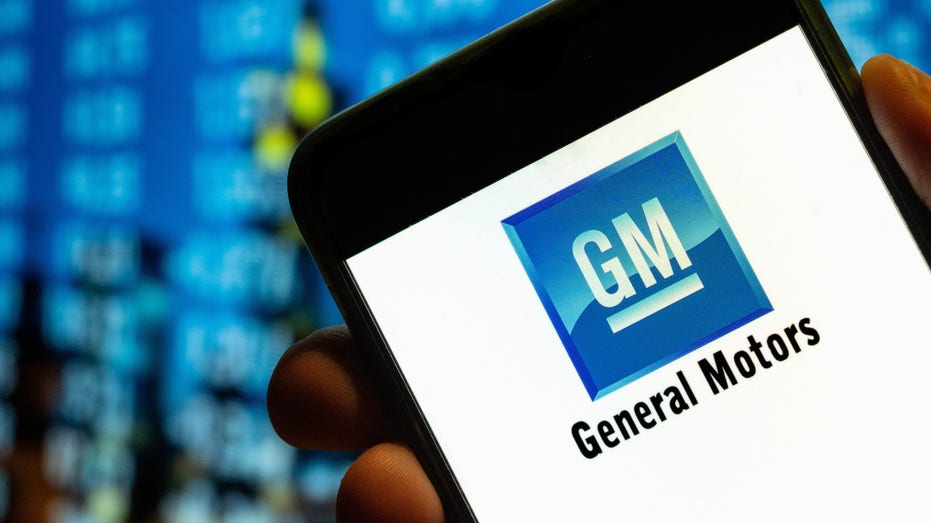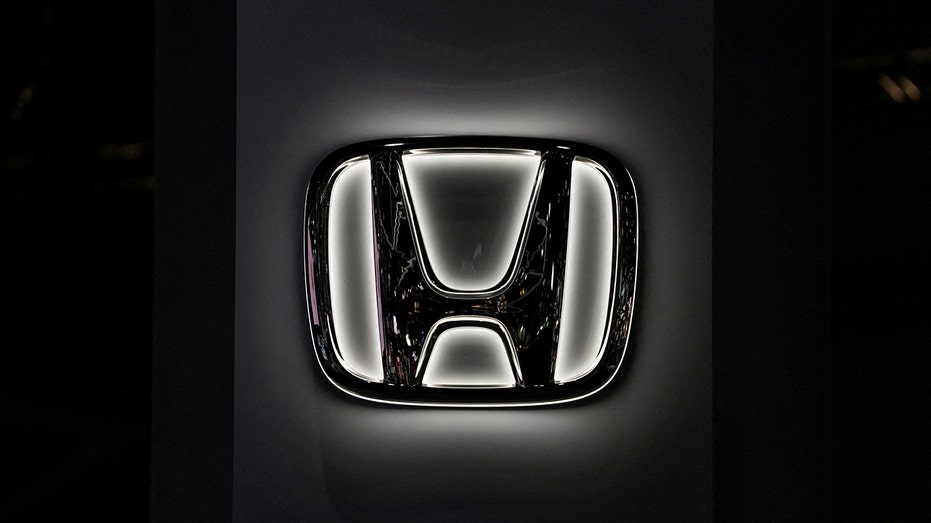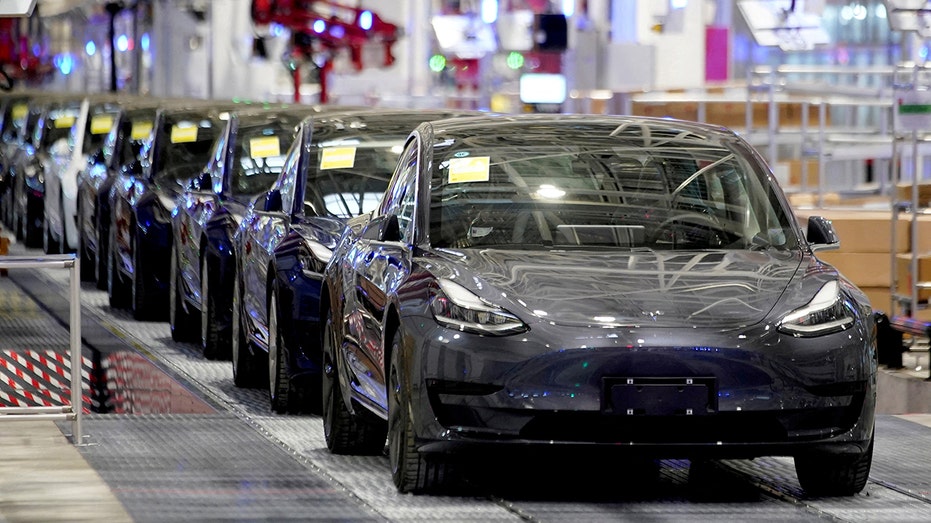U.S. Oil and Gas Association president Tim Stewart breaks down the Biden admin’s energy policies on ‘The Bottom Line.’
High interest rates and global economic uncertainty could upset climate regulators and automakers who have bet big on the global transition to electric vehicles.
A top EV battery maker warned Wednesday that revenue growth could slow in 2024 because of sputtering growth in major economies such as China and Europe, as well as high interest rates making loans too expensive for would-be buyers.
“EV demand next year could be lower than expectations,” LGES Chief Financial Officer Lee Chang-sil said on an earnings call, citing those factors, as well as automakers adjusting their EV strategies in response.
On the same day, Honda and GM announced the end of a $5 billion partnership to develop affordable EVs together just one year after launching the effort. Honda CEO Toshihiro Mibe revealed the news in an interview Wednesday with Bloomberg.
ELON MUSK SAYS HE’S WORRIED ABOUT THE ‘HIGH INTEREST RATE ENVIRONMENT WE’RE IN’
Tesla China-made Model 3 vehicles are seen during a delivery event at its factory in Shanghai on Jan. 7, 2020. (Aly Song/File Photo / Reuters Photos)
“After studying this for a year, we decided that this would be difficult as a business, so at the moment, we are ending development of an affordable EV,” Mibe told the outlet.
In a joint statement, GM and Honda said they have discontinued the affordable EV program announced last year.
“Together, GM and Honda are working on co-developed electrified vehicles, advancing state-of-the-art fuel cell technology, autonomous ride-hail vehicles — now expanding our efforts globally with the recent announcement in Japan and other areas that will transform mobility,” the companies said. “Last year, we began working on an affordable EV program for global markets, which was slated for introduction in 2027. After extensive studies and analysis, we have come to a mutual decision to discontinue the program. Each company remains committed to affordability in the EV market.”
Honda added that the company “remains focused on achieving 100% electrified vehicle sales by 2040, which includes the rollout of new EVs based on our dedicated platform, starting in 2025.”
GM on Tuesday withdrew its 2023 profit outlook and CEO Mary Barra said the automaker will slow the launch of several planned EV models to cut costs.
“We are reducing our fixed costs by $2 billion net of depreciation and amortization as we exit 2024. We are also moderating the acceleration of EV production in North America to protect our pricing, adjust to slower near-term growth in demand, and implement engineering efficiency and other improvements that will make our vehicles less expensive to produce, and more profitable,” Barra wrote in a letter to shareholders.
UAW AND FORD REACH TENTATIVE DEAL ON NEW LABOR CONTRACT

GM and Honda on Wednesday scrapped a $5 billion plan to partner and produce affordable electric vehicles. (Budrul Chukrut/SOPA Images/LightRocket via / Getty Images)
While EV sales remains strong, exceeding 300,000 units in the U.S. for the first time in the third quarter, according to a Cox Automotive report, investors appear pessimistic about long-term demand. Over the last three months, the iShares Self-Driving EV and Tech exchange-traded fund has plunged more than 24%, far more than the 8.3% fall for the MSCI All-World Index, a proxy for global equities, according to Reuters.
Tesla CEO Elon Musk last week expressed concerns that high interest rates will make it too difficult for people to afford EVs.
“I’m worried about the high interest rate environment that we’re in,” Musk told investors on an earnings call. “I just can’t emphasize it enough that for the vast majority of people, buying a car is about the monthly payment. And as interest rates rise, the proportion of that monthly payment that is interest increases naturally. So if interest rates remain high, or they go even higher, it’s that much harder for people to buy the car.”
As inflation rose in 2022, and the Federal Reserve began raising interest rates to tamp down the surge in consumer prices, Tesla cut prices on several occasions this year to help keep the cost of its cars competitive for consumers.
UAW HITS GM AGAIN, STRIKING AUTOMAKER’S LARGEST PLANT

A Honda logo is seen during the New York International Auto Show in Manhattan on April 5, 2023. (David ‘Dee’ Delgado/File Photo / Reuters Photos)
“We have to make our cars more affordable for people to buy, and I keep harping on this interest thing, but it’s just the interest rate raises the cost of the car,” Musk said. “Looking at an internal analysis, which I think is more or less on track, but when you look at the cost of the price reductions we’ve made in say the Model Y, and you compare that to how much people’s monthly payment has risen due to interest rates, the price of the Model Y is almost unchanged.”
Other automakers have responded to the poor market conditions for EVs.
Ford earlier this month announced it would temporarily cut one of three shifts at the plant that builds its line of electric F-150 Lightning pickup trucks, and in July slowed its EV ramp-up, shifting investment to commercial vehicles and hybrids.
Japanese motor manufacturer Nidec recorded a 10% decline in shares last week and now expects a $100 million loss from its e-axle business. E-axle manufacture combines motors, gears and power-control electronics.
GET FOX BUSINESS ON THE GO BY CLICKING HERE
China’s CATL, the world’s largest EV battery maker, announced its weakest quarter profit since the start of last year, with profits rising only 10.7% in the third quarter.
Reuters reported the company’s market share in China reached its lowest in more than a decade in September, underscoring the challenges facing EV manufacturers globally.
Fox News’ Eric Revell and Reuters contributed to this report.
Credit: Source link




